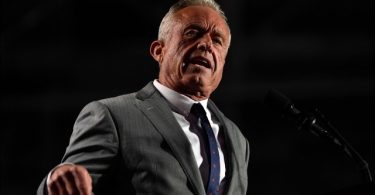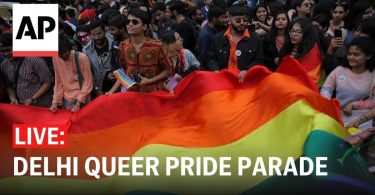Catholic Schools Week 2024 logo from the National Catholic Educational Association
This week is Catholic Schools Week in the United States, which celebrates the church’s educational ministries. LGBTQ+ teachers, students, campus ministers, and administrators can be found in Catholic institutions nationwide, and each person has their own experiences of acceptance and struggle in the field.
To celebrate the LGBTQ+ members of Catholic schools, Bondings 2.0 is featuring a series of reflections from such educators and ministers about their experiences and insights about making Catholic schools more LGBTQ+ inclusive.
Today’s post is from guest contributor Julia Erdlen (she/her), a college campus minister and hospital chaplain in St Louis, Missouri. She completed her undergraduate studies at the University of Notre Dame and then completed a Masters of Divinity at Boston College.
I used to have two versions of my resume: one for Catholic institutions and one for secular organizations. For example, the Catholic one mentioned planning Ash Wednesday Mass, while the secular one mentioned ‘planned events for large groups.’
By the time I got to graduate school, I only had a Catholic resume. My work and service experience was so focused in the Catholic world, and I wanted to do was ministerial work, so a ‘secular’ version of my resume didn’t make sense. One resume was true to who I am and what I wanted: I was Catholic to my bones and called to a life of ministry.
As I completed my degree and began to look for jobs in college campus ministry, I thought again about making two versions of my resume: a queer version and a straight version (well, a less queer version). But after years of rewarding LGBTQ+ ministry (with young people in support groups, leading peers in our LGBTQ+ affinity space, and being a guest speaker at my alma mater’s LGBTQ+ student retreat), it didn’t really make sense to hide my queer involvement. Some of my best ministry work had been in those spaces, and I wanted the freedom to continue to work with LGBTQ+ students and be supported by my colleagues.
I didn’t want to be just tolerated, staying quiet and not talk about my queer identity or staying single and never talking about my relationships. I didn’t want to be fired if a student ran into me in town while I was on a date. If I were faced with a queer student crying in my office, I wanted to be able to tell them that they are not alone, and I have been where they are. I know that being queer and Catholic often means compromises have to be made, and I have certainly made plenty. But by this point,I didn’t want to work somewhere that didn’t want the full me.
Julia Erdlen
So, I kept to just one version of my resume, a truthful and honest account of my ministry. It laid out the meaningful experiences of my life: working with queer students, serving as a liturgist and acolyte, supporting low-income students with textbooks and a food pantry, coordinating a virtual pandemic-era faith community, and organizing affinity space for LGBTQ+ ministers-in-training.
I hope prospective employers would recognize from my resume alone that I was queer. Still, I wanted to be certain. In every job interview I had, all at Catholic higher education institutions, when asked if I had any questions, I asked some version of the following: ‘I’m gay. Would sharing that with my students be a problem for you?’
Sometimes this got me an okay response in the moment, but an unpleasant follow-up phone call later. I have been asked if I could commit to living in accordance with the teachings of the Catholic Church, though I doubt any heterosexual applicants received the same question. Sometimes I got a vague statement of conditional support. And just once, I got ‘Why would that be a problem for us?’ (I work there now.)
The interviews could be a brutal, exhausting experience. I had to be vulnerable with virtual strangers. Moreover, it reminded me that no matter my qualifications and ministry experience, Catholic institutions in the U.S. can discriminate freely due to the ministerial exception to anti-discrimination laws.
Yet, throughout this ordeal, I felt so loved and accompanied by my dear friends, lay and religious, queer and non-queer, who listened to me vent, ate all the stress baking I did, and offered innumerable hugs. It was a good reminder that the only way to be a queer minister or a queer Catholic is to have a community of love and support.
I was also consoled by the words of Jesus in the Gospel of Luke: “He said to them, ‘Take nothing for your journey, no staff, nor bag, nor bread, nor money—not even an extra tunic. Whatever house you enter, stay there, and leave from there. Wherever they do not welcome you, as you are leaving that town shake the dust off your feet as a testimony against them.’” (Luke 9:3-5, NRSV)
I can’t repair injustice in the Church alone, but I can choose to work in places that are more affirming, and depart from the most hostile spaces. I could shake off the dust, and move on, from any role that does not welcome me. And in so doing, I am following the teachings of Jesus.
—Julia Erdlen, January 29, 2024






